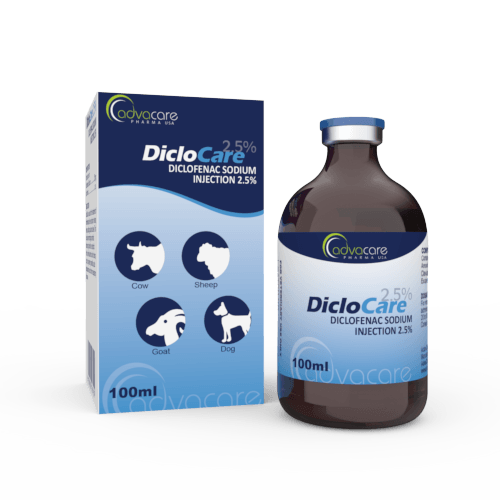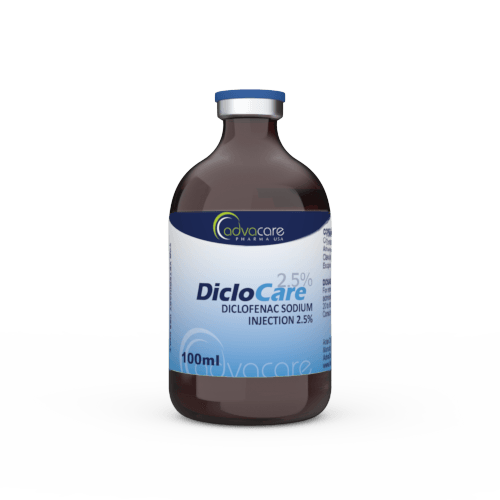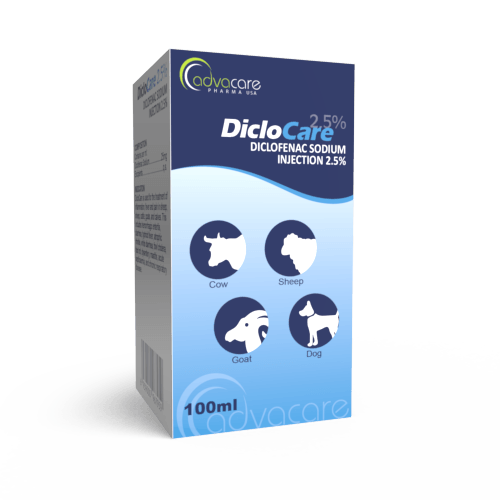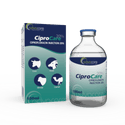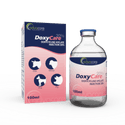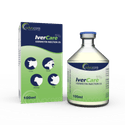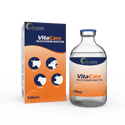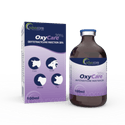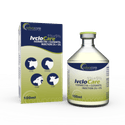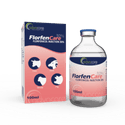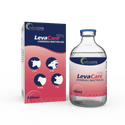- Home›
- Veterinary Pharmaceuticals›
- Veterinary Injections›
- Veterinary Liquid Injections›
- Diclofenac Sodium Injection
Diclofenac Sodium Injection
Dosage
Packaging
What is Diclofenac Sodium?
Active Ingredients: Diclofenac Sodium
Diclofenac Sodium Injection is a nonsteroidal anti-inflammatory drug (NSAID) used to manage mild to moderate acute pain, such as pain related to arthritis, joint pain, gout, or injuries in cows, dogs, goats, horses, pigs and sheep. This medication may be used as a monotherapy or with other medicines to treat moderate to severe pain.
The drug can typically be administered via the intramuscular or subcutaneous route, depending on the specific formulation and the animal species in question.
Diclofenac is a phenylacetic acid derivative. As an NSAID, it displays analgesic, anti-inflammatory, and antipyretic properties. Though the exact mechanism of action is not fully known, it is known to inhibit cyclooxygenase (COX-1 and COX-2).
Diclofenac sodium operates primarily through the inhibition of prostaglandin synthesis. Prostaglandins are lipid compounds that help mediate inflammation, pain, and fever. They are synthesized from arachidonic acid, and their production is facilitated by COX-1 and COX-2. By suppressing these enzymes, the drug prevents prostaglandin formation, thereby reducing the symptoms associated with their presence.
In animal tissues, the distribution of diclofenac sodium is extensive. Once administered, it is readily absorbed and distributed to inflamed areas. The medication's efficacy in targeting inflammation sites ensures optimal relief in conditions like arthritis or injury-induced inflammation. However, due to its mechanism of action, it's vital to monitor for gastrointestinal, renal, and hepatic side effects, as these organs are involved in prostaglandin synthesis and function.
Using diclofenac sodium in animals requires a thorough understanding of its pharmacodynamics and interactions. Given that NSAIDs can impact renal and gastrointestinal functions, animals on prolonged diclofenac therapy should undergo periodic assessments of liver and kidney function. Combining this drug with other medications should be approached with caution.
Side effects may include the development of colic, weight loss, gastric ulcers, uterine discharge, and diarrhea. Some instances of inflammation, swelling, and alopecia have also been observed while the drug is being taken.
Note that AdvaCare's Diclofenac Sodium Injection is for veterinary purposes only, and while there are types available for human use, this formulation is intended to be prescribed by a veterinary doctor or animal care specialist for an animal.
This particular medication is available in 25mg/ml (2.5%) and 50mg/ml (5%) dosages and in 10ml, 30ml, 50ml, and 100ml vials per box.
Diclofenac Sodium Injections are meticulously crafted in AdvaCare Pharma's GMP-certified facilities in China, India, and the USA. The firm stands at the forefront of delivering high quality and cost-effective medical solutions to the global market. Our extensive product range underscores the company's commitment to advancing healthcare standards and accessibility worldwide.
Why are we a trusted Diclofenac manufacturer?
Diclofenac Injection is manufactured and globally distributed by AdvaCare Pharma, a leading manufacturer of veterinary injections in the pharmaceutical industry. We have been committed to distributing high-quality, GMP-certified veterinary medications for the global market over the past 20 years. As a top Diclofenac manufacturer, we ensure that all of our 100+ veterinary injections surpass our distributors' requirements by conducting routine internal and third-party facility audits.
Uses
What is Diclofenac Sodium used for?
It's used to treat pain and inflammation associated with conditions like osteoarthritis, rheumatoid arthritis, ankylosing spondylitis, and acute pain conditions, such as injuries or post-operative pain.
What animals can be treated with Diclofenac Sodium Injection?
This medicine is recommended for camels, horses, cows, goats, sheep, dogs and pigs.
How is a Diclofenac Sodium Injection used?
This medication has been manufactured in liquid form, which is then packaged in a vial. It is intended to be administered by intramuscular or subcutaneous injection. Diclofenac Sodium Injection is designed for veterinary use only.
What is the mechanism of action of this medication in animals?
Diclofenac Sodium works by inhibiting the enzyme cyclooxygenase (COX). This results in the decreased production of prostaglandins, mediators of inflammation and pain.
Can Diclofenac Sodium be used in conjunction with other pain medications?
Avoid using Diclofenac Sodium with other NSAIDs to prevent potential adverse reactions.
Are there any notable drug interactions when using Diclofenac Sodium Injection?
Yes, it may interact with other drugs, especially corticosteroids, certain diuretics, and anticoagulants. Concurrent use can increase the risk of gastrointestinal bleeding or renal complications.
How long does it take for the medication to show noticeable effects?
The onset of action can be relatively quick, often within hours following administration, but the maximum anti-inflammatory and analgesic effects might take a bit longer, sometimes up to 24 hours.
Which animals should not receive this drug?
Animals with active ulcers, significant renal disease, or a history of NSAID hypersensitivity should not receive this medication. Pregnant or lactating animals should avoid Diclofenac Sodium unless explicitly directed by a veterinarian.
Is there a risk of developing resistance or decreased efficacy with prolonged use?
Unlike antibiotics, there isn't a risk of developing resistance to NSAIDs. However, prolonged use can lead to potential adverse effects such as gastrointestinal issues or kidney dysfunction.
What is the withdrawal period for Diclofenac Sodium?
The withdrawal time for cattle is 15 days. This means that after the last dose of Diclofenac Sodium is administered, there should be a 15-day waiting period before the animal's meat or milk can be used for human consumption.
Is Diclofenac Sodium Injection suitable for all ages of animals?
No, Diclofenac Sodium is generally not recommended for use in very young or elderly animals due to potential increased susceptibility to side effects. Seek a veterinarian's professional opinion for specific age recommendations.
How should Diclofenac Sodium Injection be stored?
Keep the vials in a cool, dry place, ideally under 30°C. Ensure that the storage area has consistent temperature control to prevent any degradation. The containers should remain sealed until use and be kept away from direct sunlight.
Dosage
How much Diclofenac Sodium Injection should be given to cows or pigs?
The usual dose is 2.5mg/kg per day, given by intramuscular route. Duration of treatment is typically 1-3 days.
How much Diclofenac Sodium Injection should be given to horses?
The usual dose is 0.5-1mg/kg per day, given by intramuscular route. Do not exceed 3mg per kg of body weight.
How much Diclofenac Sodium Injection should be given to dogs?
The advised dosage ranges from 1-2mg/kg/day to 3-4mg/kg/day for postoperative pain relief, with a maximum treatment duration of 7 days.
What should one do if a dose is missed?
If a dose is missed, it should be administered as soon as remembered. But if it's close to the time for the next dose, skip the missed dose and resume the regular schedule. Do not double dose.
What should be done in case of an overdose?
If an overdose is suspected, seek medical attention immediately. The veterinarian may induce vomiting, administer activated charcoal, or provide supportive care depending on the severity of the overdose.
Is it safe to increase the dosage if the animal doesn't seem to be responding?
No, do not adjust the dose without consulting a veterinarian. Increasing it without consultation can heighten the risk of adverse reactions or overdose.
Refer to a veterinary doctor or pharmacist for guidelines on dosage.
Side Effects
As with all pharmaceuticals, some unwanted effects can occur from the use of Diclofenac Sodium Injection.
Some common side effects may include but are not limited to:
- diarrhea
- uterine discharge
- stomach upset or pain
- nausea or vomiting
Serious side effects may include:
- allergic reaction (skin rash, fever, facial swelling, or difficulty breathing)
- swelling or fluid retention in the limbs (edema)
- colic in horses
- weight loss
- gastric ulcers
- bloody diarrhea
For a comprehensive list of all possible side effects of this medication, consult a veterinary professional. Side effects may be managed by reducing the dosage, discontinuing use, or altering the treatment plan. If any symptom persists or gets worse, or any other symptoms not mentioned are noticed, seek veterinary treatment immediately.
Precautions
Do NOT use Diclofenac Sodium Injection for an animal that:
- has a known allergy or hypersensitivity to any of the ingredients.
- will be having heart surgery.
- has a history of gastrointestinal bleeding or perforation.
- is diagnosed with severe liver or kidney dysfunction.
Treatment with Diclofenac Sodium Injection should be given in caution in animals that:
- suffer from hypertension or any other cardiovascular diseases.
- are elderly or in a weakened state, as they may be more susceptible to potential side effects.
Do not administer Diclofenac Sodium Injection while the animal is undergoing treatment with other NSAIDs, anticoagulant drugs, and certain diuretics. Animals with liver or kidney impairments might require dosage adjustments, as these organs are essential in metabolizing and excreting the drug. Always consult a veterinary health specialist before starting any form of treatment.
What are the most common animals Diclofenac Sodium Injection is used for?
Diclofenac Sodium Injection is commonly used in animals, such as:
- Cows: The medication is administered to cows to manage pain and inflammation stemming from conditions such as mastitis or lameness.
- Horses: For horses, it is a go-to choice for alleviating musculoskeletal pain or inflammation resulting from injuries or post-surgical procedures.
- Dogs: In canine medicine, Diclofenac Sodium is often employed postoperatively to manage pain or to address conditions like osteoarthritis.
- Pigs: Pigs might be given Diclofenac Sodium to treat inflammation or pain arising from various conditions, such as post-surgical discomfort or joint issues.
You might be interested in...
Why AdvaCare Pharma?
As an industry leader, we are aware of our responsibility to provide affordable and sustainable solutions to improve healthcare worldwide.
